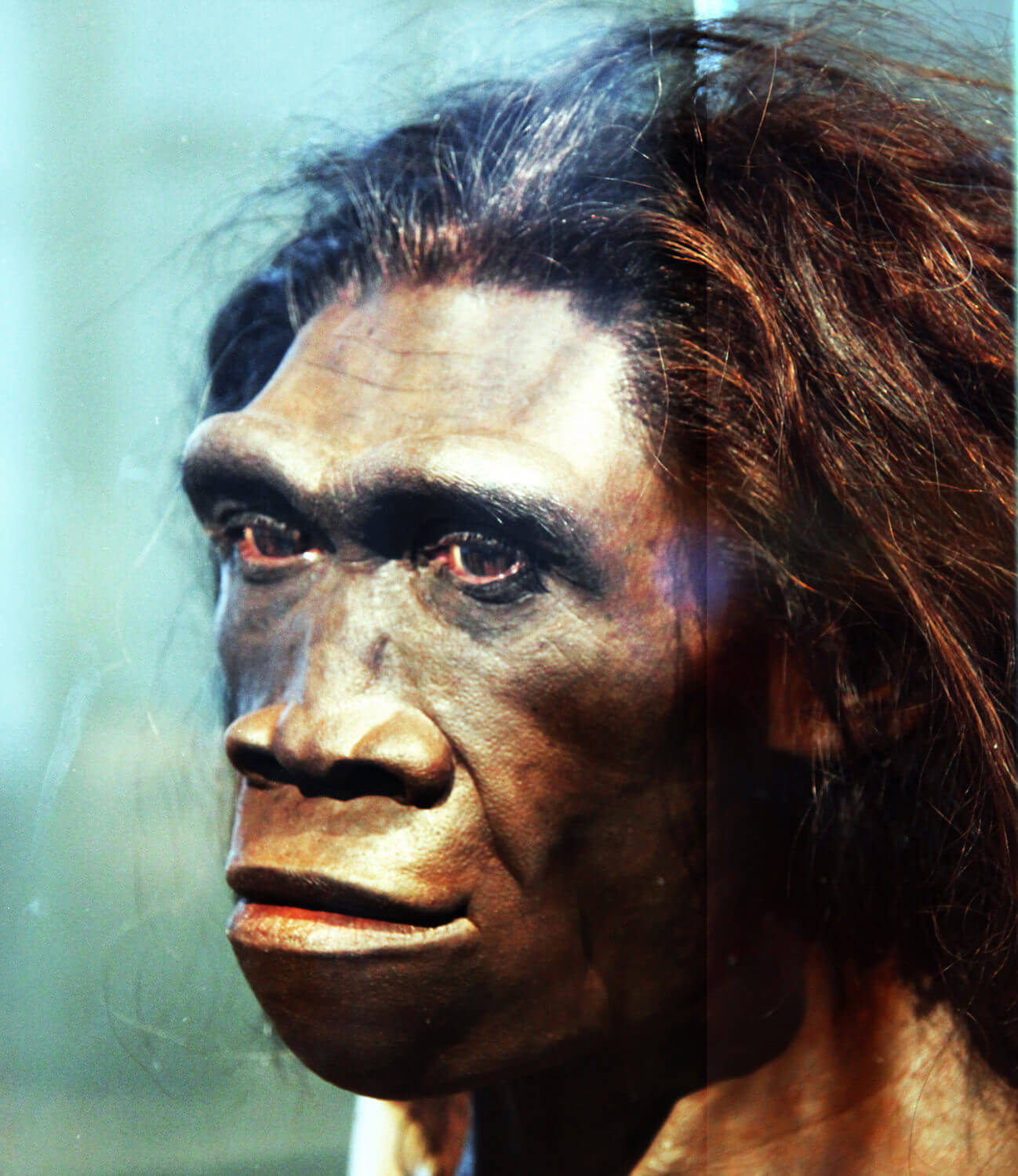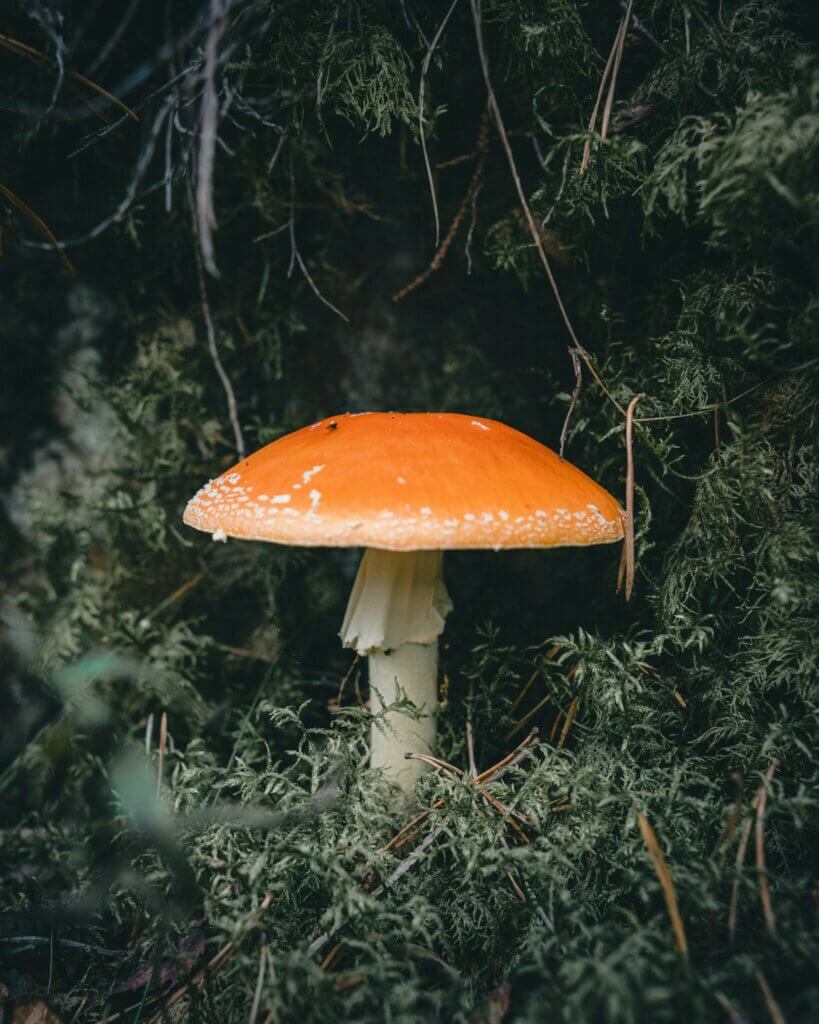Magic mushrooms have played a role in the spiritual, cultural, and cognitive development of human societies for centuries. But to what extent may they have influenced the evolution of our cognitive processes and the way we relate to reality? These mushrooms contain psilocybin, a psychedelic compound that can significantly alter perception, consciousness, and sensory experience. Well, some theories, such as the “stoned ape theory”, propose that the consumption of these mushrooms may have contributed to the development of human consciousness, creativity and abstract thought tens of thousands of years ago.
In this way, psilocybin has not only been valued for its therapeutic potential today but is also considered a possible key influence on human evolution, especially at the brain and cognitive level. Today we are going to present this interesting theory, we will see its pros and cons and we will learn more about this thesis and what scientists think about it. Will you join us?

Our hominid ancestors and psilocybin
Some time ago we introduced you to an interesting figure in our blog in the world of magic mushrooms, a multifaceted man who stood out for his contributions in areas as diverse as botany or philosophy. Yes, we are talking about Terence McKenna, a well-known character also in the field of psychonautics and experiences with different types of drugs that modify the state of consciousness of the individual. Well, it was precisely good old Terence, based on the research of Roland L. Fischer during the ’60s and ’70s, who launched the idea of the “stoned ape” and how our hominid ancestors could have evolved influenced by the ingestion of this type of substances. And, as you will see, we are not talking about the use of magic mushrooms for ceremonies or rituals as would be the case of María Sabina, but of “accidental” ingestion – long before these rituals – during the process of collecting new foods.
Hundreds of thousands of years ago, our hominid ancestors inhabited tropical areas and savannas with abundant magic mushrooms. According to theories such as McKenna’s, it would not be unusual to think that hominids could have accidentally consumed psilocybin in their search for new food sources. This frequent consumption could have led to alterations in their perception of the environment and improved their ability to solve problems and communicate. Psilocybin could have facilitated greater awareness of the environment, driving the evolution of early social and cultural behaviors, such as the use of language and the development of creativity. But is this possible? How great can the influence of a substance like psilocybin be? Let’s try to resolve these questions.

Terence Mckenna, a mushroom-loving polymath
Terence Mckenna is a difficult figure to describe; writer, philosopher, historian, ethnobotanist, psychonaut… Today we want to introduce you to this iconic personality of the psychedelic movement, undoubtedly one of the best advocates of the use of entheogenic substances of the last century.
What happens in the brain when taking psilocybin?
We know that psilocybin primarily interacts with serotonin receptors in the brain, leading to an alteration in the way reality is perceived. This psychedelic compound increases connectivity between areas of the brain that are not normally interconnected, leading to more intense sensory and emotional experiences. Studies show that under its influence, brain activity is organized in a more integrated and less fragmented manner, which can increase creativity, lateral thinking, and introspective abilities.
This temporary cognitive expansion may have allowed our ancestors to develop new cognitive skills and ways of thinking, which would have been transmitted from generation to generation until they became an integral part of the tools they had to relate to reality and carry out various cognitive processes. But how would this happen? How can these substances influence brain development?
Could psilocybin consumption have modified the evolution of our brain?
The cognitive revolution theory holds that the evolutionary leap between Homo erectus and Homo sapiens was marked by a drastic improvement in the cognitive abilities of our ancestors. Around 70,000 years ago, Homo sapiens began to develop skills such as abstract thinking, complex language, and cooperation in large groups, which allowed for the development of more sophisticated tools, art, and expansion into new geographic areas. This cognitive advancement was key in the differentiation of our species and the creation of advanced cultures, and it is precisely what our theory today directly links to the ingestion of psychoactive substances such as psilocybin or DMT.
If we look at human physiology, we see how the human brain has evolved very quickly compared to other species. The “stoned ape” theory suggests that psilocybin may have played a role in this rapid advancement by fostering new neural connections and improving cognitive skills such as language and social cooperation. The increase in neuroplasticity caused by psilocybin may have helped our ancestors better adapt to their environment, favoring the survival of those with superior cognitive abilities.
While this theory remains speculative, it does pose a fascinating hypothesis about how psychedelics may have boosted key aspects of human cognitive development. After all, we know that these substances have the potential to do so, and it’s strange to think that our ancestors simply ignored them and were unaware of their effects and properties.

The stoned ape theory: fantasy or reality?
The “stoned ape” theory, proposed by Terence McKenna in 1992 in his book Food of the Gods, suggests that the consumption of psilocybin by hominids was a determining factor in the development of the human brain. However, according to McKenna, not only psychedelic mushrooms would have stimulated key areas of the brain related to perception, creativity, and language, which would have accelerated the development of human consciousness, but also other substances such as DMT or dimethyltryptamine, contained for example in ayahuasca.
However, despite offering an interesting and provocative perspective on the relationship between psychedelic substances and the evolution of the human mind, this theory has not been widely accepted by the scientific community and has been the subject of various criticisms:
Lack of direct archaeological evidence
Although psychedelic substance use among ancient hominins may have been possible, there is no archaeological or biological evidence to directly support the idea that these organisms regularly consumed psilocybin or that this use had a significant impact on their cognitive development. McKenna’s theory is largely speculative and relies on historical correlations with no physical evidence to support it. Unlike other evolutionary milestones (such as tool use), no fossil record has been found to suggest a clear link between magic mushrooms and the development of the human brain.
Simplification of the evolutionary process
Human evolution, particularly brain development, is an incredibly complex process involving a multitude of factors, from genetics to environmental and social changes. Attributing brain growth or advanced cognitive abilities to a single factor (psilocybin use) is considered an oversimplification. Critics argue that other elements, such as tool use, fire control, language, and social cooperation, likely played a much more important and proven role in the evolution of our ancestors.

Diversity of psychoactive substances
Another key criticism is that the theory focuses almost exclusively on psilocybin, whereas throughout human history there has been exposure to a diversity of plants and substances with psychoactive properties. There is no scientific reason to think that only psilocybin had a profound effect on human evolution while other substances did not. This exclusivity seems arbitrary and unsupported by studies of anthropology.
Reverse causality
Some anthropologists suggest that while the use of psychedelic substances such as psilocybin may have influenced the behavior or experiences of our ancestors, this does not necessarily imply that they played a role in cognitive development. In other words, it is more likely that mushroom consumption was a consequence of increased cognitive ability rather than the primary cause. Our ancestors might have been curious and intelligent enough to experiment with their environment, including hallucinogenic substances, but this does not imply that these substances were responsible for their cognitive evolution.
Biological limitations
Although psilocybin produces changes in perception and thinking, the long-term effects of psilocybin use do not necessarily lead to brain growth or sustained cognitive enhancement. Critics point out that while psilocybin use temporarily alters brain processing, this does not translate into increased brain size or a direct evolutionary advantage. There is no evidence that psychedelic substances produced genetic changes in the hominids who used them, which is essential for meaningful evolution to occur.
In short, the stoned ape theory is based on interesting assumptions but lacks firm scientific support. It is a provocative hypothesis that highlights the possible interactions between psychedelic substances and human behavior, but it is far from being accepted within the scientific community due to the lack of solid evidence to support it.
References:
- Food of the Gods, Terence Mckenna
- Shroom: A Cultural History of the Magic Mushroom, Andy Letcher
- The Stoned Ape Hypothesis, A Contemporary Reappraisal, Oscar Olsen
- Los hongos alucinógenos (Psilocybe, Hymenogastraceae) en el desarrollo evolutivo de la consciencia del hombre, Jehoshua Macedo-Bedoya, Fatima Calvo-Bellido
Source link
#evolution #psilocybin #Alchimia #Grow #Shop